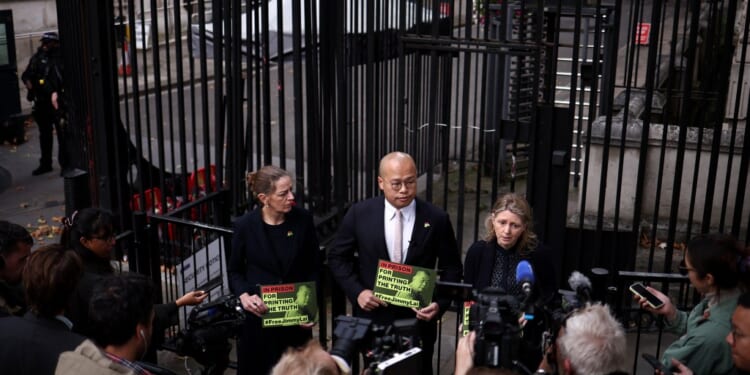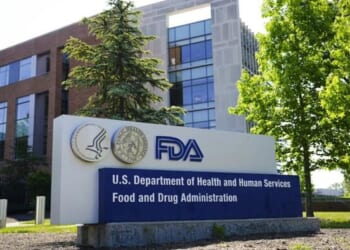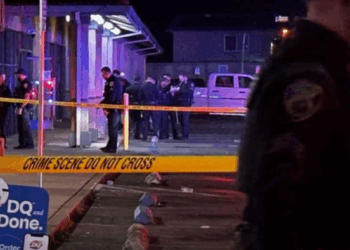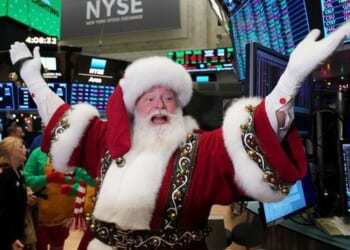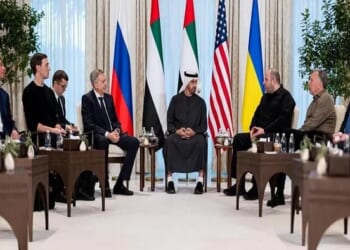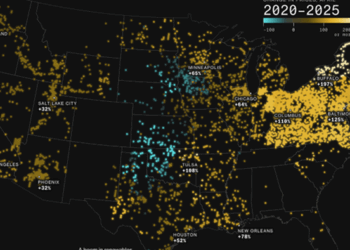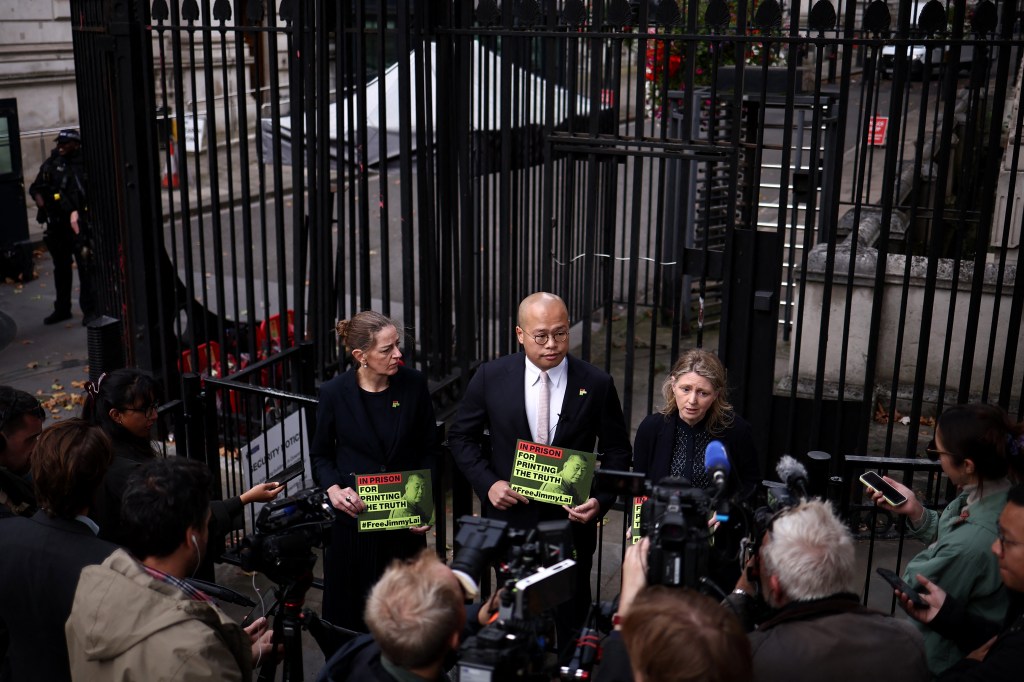
When China was handed control over Hong Kong in 1997 by its last British governor, Chris Patten, in an elaborate ceremony attended by then-Prince Charles, China promised to respect the city’s freedoms and laws for at least 50 years from 1997, as agreed upon in 1984 as part of the Sino-British Joint Declaration. Hong Kong’s “capitalist system and way of life” would be preserved, according to the declaration.
For several decades, Hong Kong flourished as the commercial gateway to China, with a relatively large degree of self-rule and limited democratic representation. It seemed like the policy of “one country, two systems,” developed by President Deng Xiaoping in the 1980s, was providing a workable modus vivendi for China and the former colonial enclaves of Hong Kong and Macau (originally a Portuguese colony). Multiple attempts by China to exert greater control over the city’s political process, in 2003 and 2014, were rebuffed by large street protests.
In 2019, however, that all changed. The government proposed a new law that would allow accused criminals in Hong Kong to be extradited to the mainland to stand trial—a clear encroachment on the city’s independent legal system. Hundreds of thousands of protesters took to the streets—in Hong Kong’s largest demonstrations ever—and stormed the airport and blocked roads after police deployed rubber bullets, beatings, and tear gas. Carrie Lam, Hong Kong’s chief executive, withdrew the bill on October 23, 2019.
But protests escalated even more just a month later, when Lam activated emergency powers to attempt to enforce an anti-masking law (protesters had been using masks to evade police detection). Police cracked down, besieging protester-occupied Chinese University and Hong Kong Polytechnic in dramatic confrontations, as protesters used firebombs and bows to fend off riot police for nearly two weeks. Pro-democracy politicians won massive victories in elections to Hong Kong’s legislative council.
But Chinese authorities refused to back down, eventually taking advantage of pandemic-induced lockdowns to aggressively prosecute any group of people gathered in public. Then, in June 2020, the Communist Party passed a national security law criminalizing most dissent and defining terrorism, secession, and foreign collusion in very broad terms.
“If this move takes place,” pro-democracy lawmaker Dennis Kwok told Reuters at the time, “this is the end of Hong Kong.” It was certainly the end of Kwok’s career in the city: Just months later, he moved to Canada and now runs a law practice in the U.S.
Hong Kong is now much more like the rest of China. “In the last five years, [the city] has gone from being still an open and somewhat democratic society, up until 2019-2020, to being one of Asia’s most repressive police states,” Benedict Rogers, a human rights activist and senior director of the British NGO Fortify Rights, told TMD. Dissent is now rare in the city, with the government passing another national security law in 2024 to further enhance its powers.
Hong Kong remains bustling and prosperous, with its independent currency and laws on finance and business largely unaffected by China’s crackdown. But in the pattern of daily life, things have changed. “I know anecdotally that [Hong Kongers] would be extremely cautious, even in restaurants or in taxis,” to discuss politics, Rogers said.
Rana Mitter, the S.T. Lee chair in U.S.-Asia Relations at Harvard’s Kennedy School, told TMD that the government is also increasingly promoting Mandarin Chinese in schools and public life, rather than Hong Kong’s native Cantonese. Hong Kong’s language policies are just one example of a Chinese government that’s increasingly less tolerant of internal diversity, said Mitter: “The overall direction of travel is to homogenize the idea of Chinese culture.”
It’s unclear whether the West can do much to halt China’s move in that direction. By email, Steve Tsang, the director of the SOAS China Institute at the University of London, told TMD that the “best the democracies can do is to help [give] those from Hong Kong who still work to advance democracy and human rights there a safe sanctuary when they need it.” As he explained, “Beijing will not yield on Hong Kong, unless we are talking about Trump going for an all-out tariff war in return for concessions… but President Trump is not exactly interested in HK’s democracy or human rights.”
But freeing Lai might be more manageable. In August, President Donald Trump told Fox News’ Brian Kilmeade that he would “do everything I can to save” Lai ahead of his administration’s trade negotiations with the Chinese government, saying that he would raise the case with Chinese officials. The Senate also considers this a priority. Sen. Rick Scott, a Republican from Florida, authored a letter signed by 50 other senators last week, calling on British Prime Minister Keir Starmer, then about to meet with Trump, to work for Lai’s release (Lai is a British citizen). “Like our president, we share Mr. Lai’s values and admire his struggle for freedom, democracy, and the rule of law,” they wrote.
The U.N. Working Group on Arbitrary Detention has also officially determined that Lai is a political prisoner, prompting the British ambassador to the U.N., Kumar Iyer, to call for British consular access to Lai and an independent medical assessment.
Under questioning in Parliament last October, Starmer said that freeing Lai is a government priority. But the prime minister has yet to meet with the Lai family, Sebastien Lai told TMD. “If it’s truly a priority, he should meet with the family,” he said. “It tells my father’s captors, the Chinese government, that this case really matters.” Downing Street did not return TMD’s request for comment.
Pressing Xi on trade concessions, or using diplomatic tools like the ongoing controversy over the construction of a new Chinese embassy in London, might be options that Britain and the U.S. can barter for leniency toward Lai, said Rogers. “I think some element of conditionality around his release is something that both our governments and other Western governments could do,” he told TMD.
Condemning China would hardly be virgin territory for Trump. “In the first Trump term, the administration took a very robust stand on human rights in China,” Rogers noted, referencing condemnations of both the crackdown in Hong Kong and the Chinese government’s abuse of the Uyghur ethnic minority in the nation’s northwest. But sweeping cuts to U.S. democracy support, especially to media programs like Voice of America and Radio Free Asia, along with a British desire to reset relations with China, have put Chinese human-rights abuses on the back burner. “On both fronts, the pushback is not what it should be,” said Rogers.
Few observers are under the illusion that Lai will receive anything but a guilty verdict. His supporters’ hopes rest on the length and conditions of his sentence.
But Sebastien Lai says that his father knows that he’s sacrificing for a cause bigger than himself. Last year, Jimmy Lai told a court that his Roman Catholic faith and his vocation as a newsman gave him the same mission: to tell the truth. “For truth prevails in God’s kingdom, and that’s good enough for me,” he said.He “knows full well what he was sacrificing, knows full well that it was the right thing to do,” Sebastien told TMD. “It wasn’t the comfortable thing, it wasn’t the thing that ensures longevity, either, but it was the right thing, and you protected people when you could have easily ran.”

